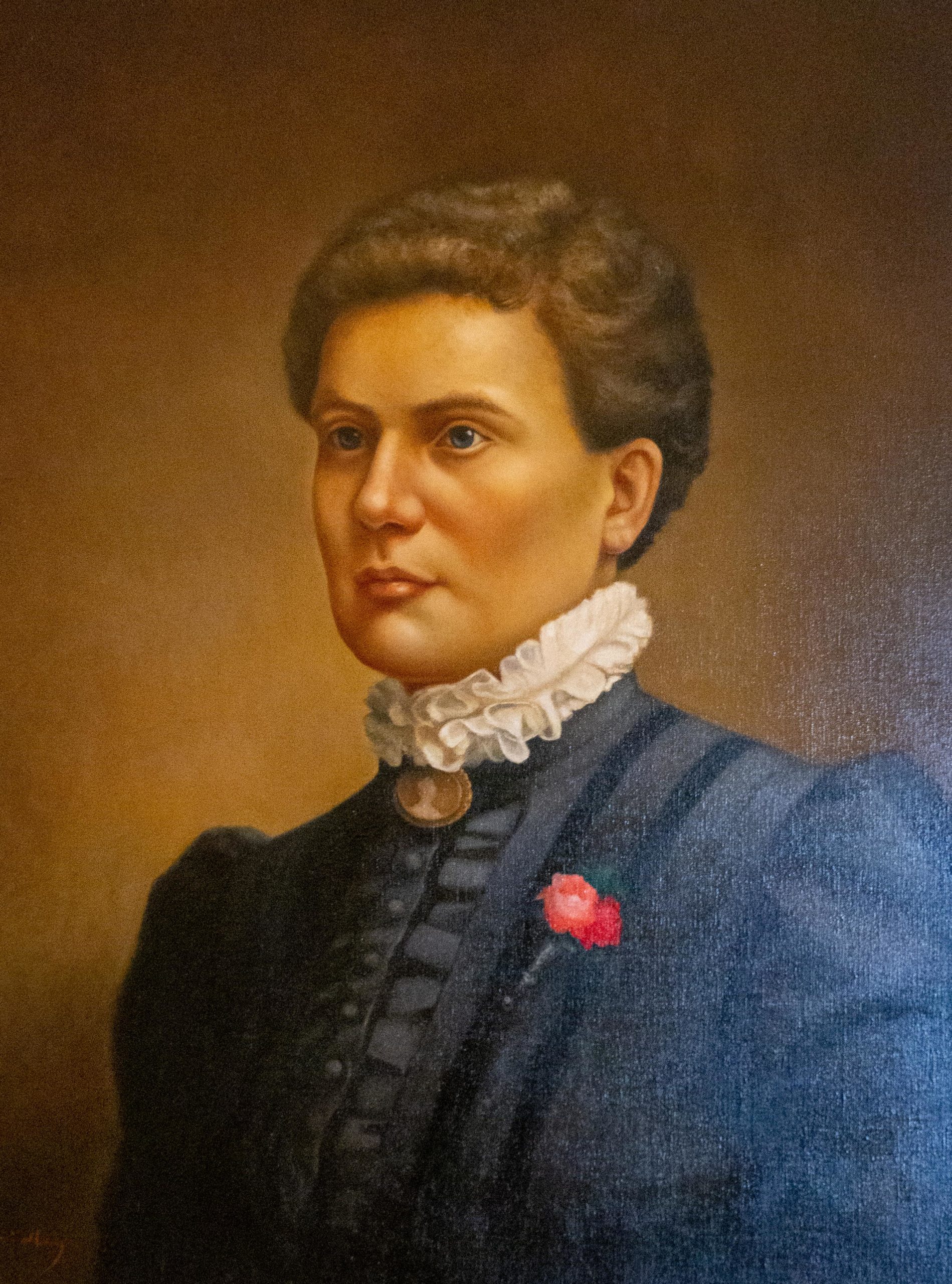
Let come what will come, no man, be he priest, minister or judge, shall sit upon the throne of my mind, and decide for me what is right, true, or good.”
Marilla Ricker, 1916, in I Don’t Know, Do You?
Born in New Durham, NH in 1840, Marilla Young Ricker may have been destined to be a rebel from an early age. Referred to by one historian as a “tomboy” who loved to run and climb trees, and influenced by her atheistic father, young Marilla was already questioning commonly held religious beliefs by age 10. After graduating from the Literary and Scientific Institution in New London (later to become Colby Sawyer College), she headed for a teaching career, one of the few open to educated young women. But her refusal to teach Bible lessons in class (apparently she preferred Emerson) brought an end to that option.
The following year, 1863, she married John Ricker, an affluent Madbury landowner 33 years her senior. When John died only 5 years later, Marilla was left with a fortune, re-settled in Dover, and soon joined the rising movement for women’s suffrage. After attending the first convention of the National Women’s Suffrage Association, organized by Susan B Anthony and Elizabeth Cady Stanton, in 1869, Ricker decided her right to vote should not be denied.
In 1870, she registered to vote in Dover, but when election day came around, she was prevented from turning in a ballot. Friends convinced her not to file suit, but “she continued to protest the denial of her rights every time she paid her taxes, and every year, she attempted to vote and was denied,” according to legal historian Linda Upham-Bornstein. It would be 50 more years before women’s right to vote would be added to the US Constitution.
After a sojourn in Europe, Ricker returned to America, decided to study law, and moved to Washington, DC, where Albert Riddle had already mentored the nation’s first woman lawyer. Ricker studied law with Riddle from 1876 to 1880, returning to New Hampshire in the summer. When Ricker and 16 men took the Washington DC bar exam in 1880, she earned the highest score. In 1884, she was appointed as a commissioner and examiner in chancery, a kind of judge, the first woman to get such an appointment.
Back in New Hampshire, Ricker became an advocate for prisoners as well as women’s equality. “Ricker sought to defend those who were unable to defend themselves paying their fines, seeking pardons, and providing necessities when visiting clients in prison,” writes Upham-Bornstein. Ricker earned a reputation as “the prisoner’s friend.”
Ricker’s initial application to join the NH Bar was turned down, but it was granted on appeal to the NH Supreme Court in 1890. She was the first woman allowed to practice law in the Granite State.
Ricker also focused her attention on politics. In 1898, she considered a run for Congress, but was talked out of it by friends. In 1910, she threw her hat in the ring for governor, even though women’s right to vote had not been recognized. If women “can be hanged under the laws, they should have a voice in making them,” she said. Although the Constitution declared only that governors must be above the age of 30 and have lived in the state for at least 7 years, the attorney general ruled her candidacy illegal due to her sex. Once again, she stepped aside for male Republicans, stating her goal had been “to get the people of New Hampshire used to thinking about a woman for governor.” It would take 82 more years for a woman (Arnie Arnesen) to receive a major party nomination for governor, and 86 more years for a woman (Jeanne Shaheen) to be elected to the state’s highest office.
Marilla Ricker died in 1920, shortly after ratification of the 19th Amendment opened the franchise to women. A portrait of Marilla Ricker now hangs in the State House.

